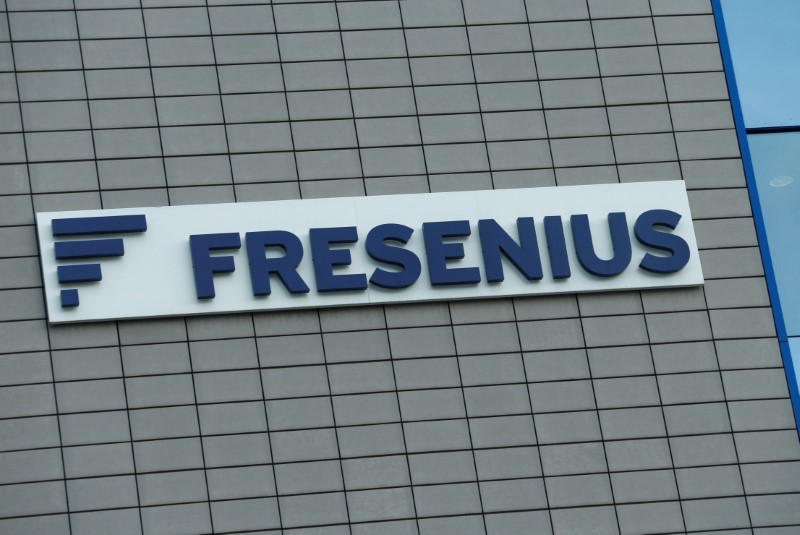By Ludwig Burger
FRANKFURT (Reuters) - German healthcare group Fresenius SE & Co KGaA (DE:FREG) has stepped up its dealmaking, agreeing to buy U.S. generic drugmaker Akorn Inc (O:AKRX) for $4.75 billion (£3.72 billion) and the biosimilars arm of Germany's Merck (NYSE:MRK) KGaA.
Takeovers were part of Fresenius's growth strategy under previous boss Ulf Mark Schneider, now leading Nestle (S:NESN). But his successor, former finance chief Stephan Sturm, is lifting the pace, having already bought a Spanish hospital chain for 5.8 billion euros (£4.92 billion) since taking over in June.
The latest deals are in keeping with Fresenius's focus on drugs that have lost patent protection, but also mark a foray into new dosage forms, therapeutic areas and biotech drugs for its Kabi unit, a maker of generic infusion drugs as well as tube feeding and blood transfusion equipment.
Akorn will add products such as medical creams, ophthalmic drugs, oral liquids, ear drops, nasal sprays and respiratory drugs, where competition is relatively benign compared with standard pills and tablets.
"We are putting Fresenius Kabi on track for an even more broadly based and strong sustainable growth beyond the current decade," said Sturm.
The separate deal with Merck KGaA
"We've always said the regulatory environment would have to clear up before we invest in biosimilars. A lot has been done in that area in the recent past," Sturm added.
Reuters earlier on Monday reported Fresenius was close to acquiring Akorn.
In a deal that has the backing of Akorn's management and its largest shareholder, Fresenius will pay $34 per share and take on Akorn's net debt of about $450 million for a total price tag of $4.75 billion, Fresenius said late on Monday.
It will be financed by a broad mix of euro- and dollar-denominated debt instruments.
Berenberg analyst Tom Jones said the price tag of 12.4 times Akorn's core earnings (adjusted EBITDA) estimate for 2017 should not "give anyone any great cause for concern".
He flagged some risks related to Akorn's older drugs that might draw scrutiny from U.S. healthcare regulators but was reassured by the buyer's "long history of doing M&A, and doing it relatively well".
Fresenius shares were up 0.9 percent at 0750 GMT, broadly in line with the European healthcare index (SXDP).
For the Merck deal, Fresenius will pay an initial 170 million euros and up to 500 million in milestone payments tied to the achievement of drug development targets as none of Merck's biosimilar drugs have been launched yet.
Merck also stands to receive single-digit percentage royalties on sales.
Fresenius said it expected first revenues towards the end of 2019. It also said it was prepared to spend and invest up to 1.4 billion euros to build up the new business through 2022, including the upfront and milestone payments to Merck.
Fresenius, with a market capitalisation of more than 40 billion euros, runs businesses ranging from kidney dialysis and drug manufacturing to hospital management.
Group net debt as a multiple of core earnings will temporarily increase to about 3.3 after both transactions but is expected to return to about 3 at the end of 2018.
Fresenius has for years enjoyed low borrowing costs because of its diversified businesses in an industry largely immune to swings in the business cycle.

The buyer's main advisers on the Akorn deal were investment banks Credit Suisse (S:CSGN) and Moelis (N:MC), as well as law firm Allen & Overy.